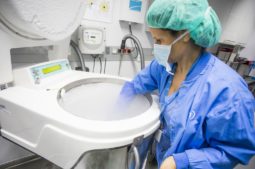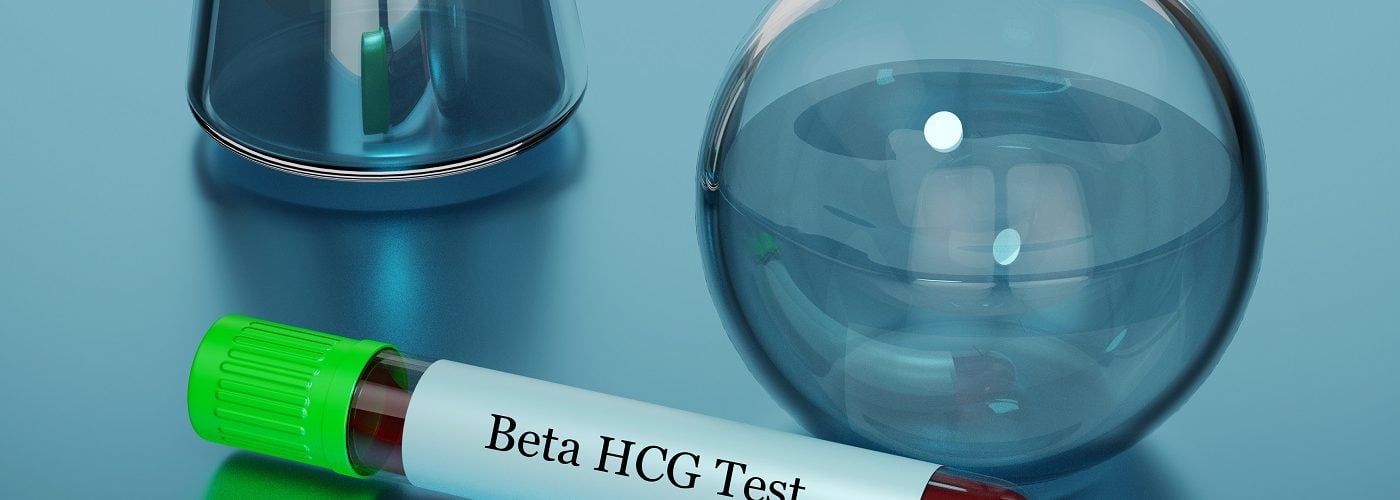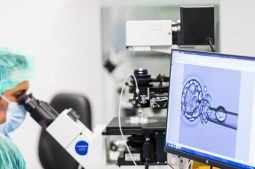
Any sexually active woman in her reproductive years stands a chance of getting pregnant each month, even if she is using contraception. It’s therefore not surprising that most of us have needed to use a pregnancy test at some point in our lives. Whether you’re hoping to be pregnant or very much wanting not to be, it’s inevitably a time of heightened anxiety, bringing with it the urge to use the test as soon as possible. But when is that and when is too soon?
In this blog article, we’re looking at how pregnancy tests work, when is the best time to take a pregnancy test and how accurate you can expect them to be. Finally, for those women having fertility treatment and who are facing the most anxious time of all while waiting for a pregnancy test, we explain why things are slightly different.
How do pregnancy tests work?
There are two aspects to how pregnancy tests work, one is the chemical reaction that allows them to produce your result, the other is the nuts and bolts of what exactly you need to do when you take the test.
How the pregnancy test works: the chemistry
There are many different brands of pregnancy test available over the counter. They may vary in the method used, but they almost all work in the same way, to test the amount of human chorionic gonadotropin (hCG) present in your urine. The test kit contains a strip prepared with a chemical called a monoclonal antibody (anti-hCG) which, in the presence of hCG, produces a visible colour reaction. This colour change is displayed in various ways depending on the brand of pregnancy test.
How do you take the pregnancy test?
There are several ways of collecting your urine to take the test. You may need to:
- Collect some urine into a container and then dip a testing stick into it;
- Collect urine in a cup and use an eye dropper to deliver a small amount of the liquid into a container provided with the test;
- Hold the testing stick in your urine stream mid-flow.
The kit will then display the result in a window. A single window test always has one test line to show it is working, and the appearance of a second line indicates you are pregnant. A two-window kit is basically the same, with the test line showing in one window and your result, in the shape of a plus or minus sign, in the second window. A digital test kit may show ‘Yes’ or ‘You’re pregnant’ but they are using the same paper strip technology as other tests, with an extra layer of digital display at the user interface.
The best time to take a pregnancy test
There are two aspects to this question as well. There’s the best time of the month, which is by far the most important, but there’s also the time of day to consider.
The best time of the monthly cycle
The usual advice is to wait until the day after your missed period and indeed for many people, a missed period is often the first sign that they may be pregnant. If you have a regular 28-day cycle, your period would be due on day 28 and so day 29 is the first day after your missed period. If you have an irregular cycle, or don’t keep track, take the test the day after what you estimate to be your longest cycle time.
There’s no certain guarantee about the first day of your missed period. It just happens to coincide, if you have a regular cycle, with 13 to 14 days after ovulation. Since a fertilised egg can take up to a week to implant in the uterus, and as the body only begins to produce hCG after implantation, these two weeks after ovulation are needed for hCG levels to increase to the point where they can be detected by the test. You can’t hurry mother nature! Or at least if you do, by taking the test too early, you may get a false negative result.
The best time of day
The best time of day to take a pregnancy test is first thing in the morning. This is because your urine is likely to be more concentrated at this time, and so it has the best chance of showing up the presence of hCG. Having said that, it’s not completely out of the question to take the test at other times in the day, particularly if you haven’t been drinking a lot so that your urine is not diluted.
How accurate are pregnancy tests?
In general, home pregnancy tests have a very high accuracy level, and because of the way that they work, a false positive is extremely unlikely. However, a false negative is more of a possibility, particularly on the day of or day after your missed period, because hCG levels could still be undetectably low. If you get a negative test but you ‘feel’ you might be pregnant, for example because of painful breasts or even morning sickness, it’s a good idea to take another test a week later.
Why do I need a blood test after IVF treatment?
When you are waiting to know whether you are pregnant following IVF treatment, it would not be a good idea to simply use a home testing kit. The reason you need to wait for two weeks following embryo transfer is the medication history. During the ovarian stimulation stage of the treatment, you will have been given an injection of hCG to trigger final maturation of the oocytes, 36 hours before retrieval of the eggs. The remains of the hCG could still be present in your body (and detectable in your urine) for some time afterwards. And that of course could invalidate the results of the home test. This is why, hard as it is, there’s no way around the two-week wait, followed by a blood test to confirm pregnancy.
Contact us at IVI
If you’re taking a pregnancy test at home, we wish you the best with getting the result that you’re hoping for. If you’re disappointed yet again with a negative result, and you’ve been trying for a year (or six months if you’re over 36), it may be time to seek some help. You can contact us online, or take a look at our video about your first visit to IVI so you know what to expect. With our overall success rate of 90%, your chances of a positive result are good.





Comments are closed here.